« Return to all search results
Title Search Results
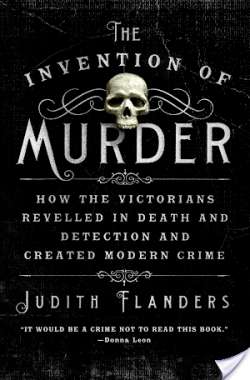
"Superb... Flanders's convincing and smart synthesis of the evolution of an official police force, fictional detectives, and real-life cause célèbres will appeal to devotees of true crime and detective fiction alike." -Publishers Weekly, starred review In this fascinating exploration of murder in nineteenth century England, Judith Flanders examines some of the most gripping cases that captivated the Victorians and gave rise to the first detective fiction Murder in the nineteenth century was rare. But murder as sensation and entertainment became ubiquitous, with cold-blooded killings transformed into novels, broadsides, ballads, opera, and melodrama-even into puppet shows and performing dog-acts. Detective fiction and the new police force developed in parallel, each imitating the other-the founders of Scotland Yard gave rise to Dickens's Inspector Bucket, the first fictional police detective, who in turn influenced Sherlock Holmes and, ultimately, even P.D. James and Patricia Cornwell. In this meticulously researched and engrossing book, Judith Flanders retells the gruesome stories of many different types of murder in Great Britain, both famous and obscure: from Greenacre, who transported his dismembered fiancée around town by omnibus, to Burke and Hare's bodysnatching business in Edinburgh; from the crimes (and myths) of Sweeney Todd and Jack the Ripper, to the tragedy of the murdered Marr family in London's East End. Through these stories of murder-from the brutal to the pathetic-Flanders builds a rich and multi-faceted portrait of Victorian society in Great Britain. With an irresistible cast of swindlers, forgers, and poisoners, the mad, the bad and the utterly dangerous, The Invention of Murder is both a mesmerizing tale of crime and punishment, and history at its most readable.
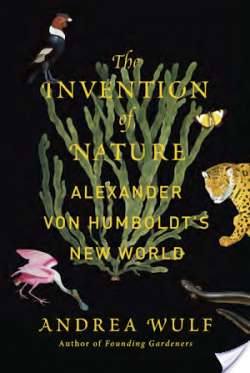
The acclaimed author of Founding Gardeners reveals the forgotten life of Alexander von Humboldt, the visionary German naturalist whose ideas changed the way we see the natural world—and in the process created modern environmentalism. NATIONAL BEST SELLER One of the New York Times 10 Best Books of the Year Winner of the Los Angeles Times Book Prize, The James Wright Award for Nature Writing, the Costa Biography Award, the Royal Geographic Society's Ness Award, the Sigurd F. Olson Nature Writing Award Finalist for the Andrew Carnegie Medal for Excellence in Nonfiction, the Kirkus Prize Prize for Nonfiction, the Independent Bookshop Week Book Award A Best Book of the Year: The New York Times, The Atlantic, The Economist, Nature, Jezebel, Kirkus Reviews, Publishers Weekly, New Scientist, The Independent, The Telegraph, The Sunday Times, The Evening Standard, The Spectator Alexander von Humboldt (1769–1859) was an intrepid explorer and the most famous scientist of his age. In North America, his name still graces four counties, thirteen towns, a river, parks, bays, lakes, and mountains. His restless life was packed with adventure and discovery, whether he was climbing the highest volcanoes in the world or racing through anthrax-infected Siberia or translating his research into bestselling publications that changed science and thinking. Among Humboldt’s most revolutionary ideas was a radical vision of nature, that it is a complex and interconnected global force that does not exist for the use of humankind alone. Now Andrea Wulf brings the man and his achievements back into focus: his daring expeditions and investigation of wild environments around the world and his discoveries of similarities between climate and vegetation zones on different continents. She also discusses his prediction of human-induced climate change, his remarkable ability to fashion poetic narrative out of scientific observation, and his relationships with iconic figures such as Simón Bolívar and Thomas Jefferson. Wulf examines how Humboldt’s writings inspired other naturalists and poets such as Darwin, Wordsworth, and Goethe, and she makes the compelling case that it was Humboldt’s influence that led John Muir to his ideas of natural preservation and that shaped Thoreau’s Walden. With this brilliantly researched and compellingly written book, Andrea Wulf shows the myriad fundamental ways in which Humboldt created our understanding of the natural world, and she champions a renewed interest in this vital and lost player in environmental history and science. From the Hardcover edition.
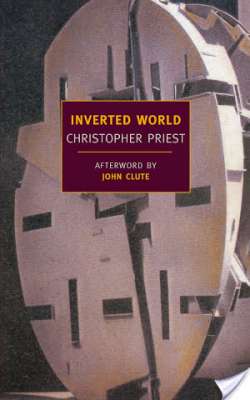
The city is winched along tracks through a devastated land full of hostile tribes. Rails must be freshly laid ahead of the city and carefully removed in its wake. Rivers and mountains present nearly insurmountable challenges to the ingenuity of the city’s engineers. But if the city does not move, it will fall farther and farther behind the “optimum” into the crushing gravitational field that has transformed life on Earth. The only alternative to progress is death. The secret directorate that governs the city makes sure that its inhabitants know nothing of this. Raised in common in crèches, nurtured on synthetic food, prevented above all from venturing outside the closed circuit of the city, they are carefully sheltered from the dire necessities that have come to define human existence. And yet the city is in crisis. The people are growing restive, the population is dwindling, and the rulers know that, for all their efforts, slowly but surely the city is slipping ever farther behind the optimum. Helward Mann is a member of the city’s elite. Better than anyone, he knows how tenuous is the city’s continued existence. But the world—he is about to discover—is infinitely stranger than the strange world he believes he knows so well.
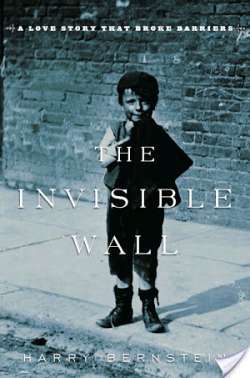
“There are places that I have never forgotten. A little cobbled street in a smoky mill town in the North of England has haunted me for the greater part of my life. It was inevitable that I should write about it and the people who lived on both sides of its ‘Invisible Wall.’ ” The narrow street where Harry Bernstein grew up, in a small English mill town, was seemingly unremarkable. It was identical to countless other streets in countless other working-class neighborhoods of the early 1900s, except for the “invisible wall” that ran down its center, dividing Jewish families on one side from Christian families on the other. Only a few feet of cobblestones separated Jews from Gentiles, but socially, it they were miles apart. On the eve of World War I, Harry’s family struggles to make ends meet. His father earns little money at the Jewish tailoring shop and brings home even less, preferring to spend his wages drinking and gambling. Harry’s mother, devoted to her children and fiercely resilient, survives on her dreams: new shoes that might secure Harry’s admission to a fancy school; that her daughter might marry the local rabbi; that the entire family might one day be whisked off to the paradise of America. Then Harry’s older sister, Lily, does the unthinkable: She falls in love with Arthur, a Christian boy from across the street. When Harry unwittingly discovers their secret affair, he must choose between the morals he’s been taught all his life, his loyalty to his selfless mother, and what he knows to be true in his own heart. A wonderfully charming memoir written when the author was ninety-three, The Invisible Wall vibrantly brings to life an all-but-forgotten time and place. It is a moving tale of working-class life, and of the boundaries that can be overcome by love. From the Hardcover edition.
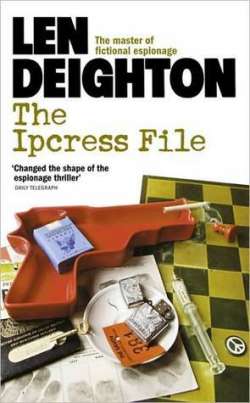
Len Deighton's classic first novel, whose protagonist is a nameless spy -- later christened Harry Palmer and made famous worldwide in the iconic 1960s film starring Michael Caine. The Ipcress File was not only Len Deighton's first novel, it was his first bestseller and the book that broke the mould of thriller writing. For the working class narrator, an apparently straightforward mission to find a missing biochemist becomes a journey to the heart of a dark and deadly conspiracy. The film of The Ipcress File gave Michael Caine one of his first and still most celebrated starring roles, while the novel itself has become a classic.
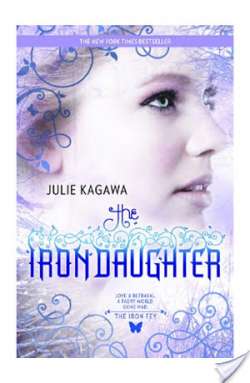
The New York Times Bestselling Author Half Summer faery princess, half human, Meghan has never fit in anywhere. Deserted by the Winter prince she thought loved her, she is prisoner to the Winter faery queen. As war looms between Summer and Winter, Meghan knows that the real danger comes from the Iron fey—ironbound faeries that only she and her absent prince have seen. But no one believes her. Worse, Meghan's own fey powers have been cut off. She's stuck in Faery with only her wits for help. Trusting anyone would be foolish. Trusting a seeming traitor could be deadly. But even as she grows a backbone of iron, Meghan can't help but hear the whispers of longing in her all-too-human heart. Don't miss the first book in Julie Kagawa's highly anticipated new series, TALON, AVAILABLE OCTOBER 28, 2014
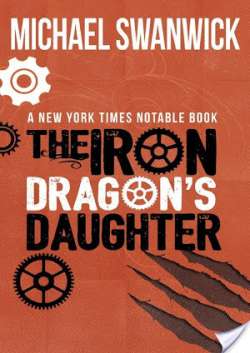
A New York Times Notable Book: “Examines the industrial revolution, the Vietnam War, racism and sexism, and the escapist dreams of genre fantasy. A truly great anti-fantasy.” —China Miéville Jane is trapped as a changeling in an industrialized Faerie ruled by aristocratic high elves and populated by ogres, dwarves, night-gaunts, and hags. She is the only human in a factory where underage forced labor builds cybernetic, magical dragons that are weaponized and sent off to war. When the damaged dragon Melanchthon tempts Jane with promises of freedom, the stage is set for a daring escape that will shake the foundations of existence. Combining alchemy and technology, a coming-of-age story like no other, The Iron Dragon’s Daughter takes place against a dystopic mindscape of dark challenges and class struggles that force Jane to make costly decisions at every turn. A finalist for the Arthur C. Clarke Award, the World Fantasy Award for Best Novel, and the 1994 Locus Award, The Iron Dragon’s Daughter a is one-of-a-kind melding of grimdark fantasy and cyberpunk grit from the Nebula Award–winning author of Stations of the Tide. It engages the reader in a nihilistic world in which nothing is as it seems and everything comes at a steep and often horrific price.
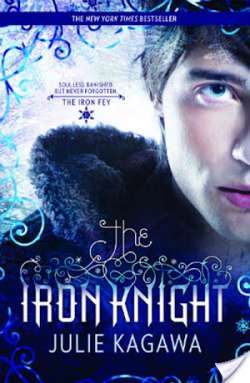
In the epic, eagerly awaited fourth book of the Iron Fey series, faery prince Ash finally has the opportunity to tell his story. Original.
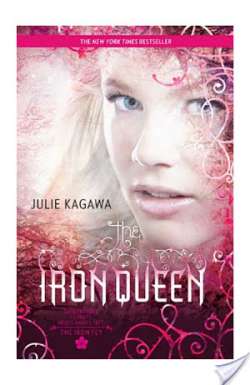
In less than twenty-four hours I’ll be seventeen. Although, technically, I won’t actually be turning seventeen. I’ve been in the Nevernever too long. When you’re in Faery, you don’t age. So while a year has passed in the real world, agewise I’m probably only a few days older than when I went in. In real life, I’ve changed so much I don’t even recognize myself. MY NAME IS MEGHAN CHASE. I thought it was over. That my time with the fey, the impossible choices I had to make, the sacrifices of those I loved, was behind me. But a storm is approaching, an army of Iron fey that will drag me back, kicking and screaming. Drag me away from the banished prince who’s sworn to stand by my side. Drag me into the core of conflict so powerful, I’m not sure anyone can survive it. THIS TIME, THERE WILL BE NO TURNING BACK.
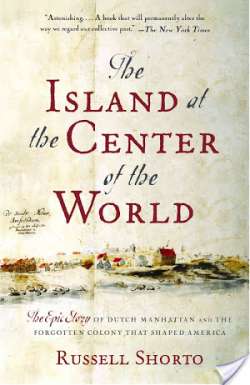
A gripping narrative of New Netherland–a story of global sweep centered on a wilderness called Manhattan–that transforms our understanding of early America. When the British wrested New Amsterdam from the Dutch in 1664, the truth about its thriving, polyglot society began to disappear into myths about an island purchased for 24 dollars and a cartoonish peg-legged governor. But the story of the Dutch colony of New Netherland was merely lost, not destroyed: 12,000 pages of its records–recently declared a national treasure–are now being translated. Russell Shorto draws on this remarkable archive in The Island at the Center of the World, which has been hailed by The New York Times as “a book that will permanently alter the way we regard our collective past.” The Dutch colony pre-dated the “original” thirteen colonies, yet it seems strikingly familiar. Its capital was cosmopolitan and multi-ethnic, and its citizens valued free trade, individual rights, and religious freedom. Their champion was a progressive, young lawyer named Adriaen van der Donck, who emerges in these pages as a forgotten American patriot and whose political vision brought him into conflict with Peter Stuyvesant, the autocratic director of the Dutch colony. The struggle between these two strong-willed men laid the foundation for New York City and helped shape American culture. The Island at the Center of the World uncovers a lost world and offers a surprising new perspective on our own.
